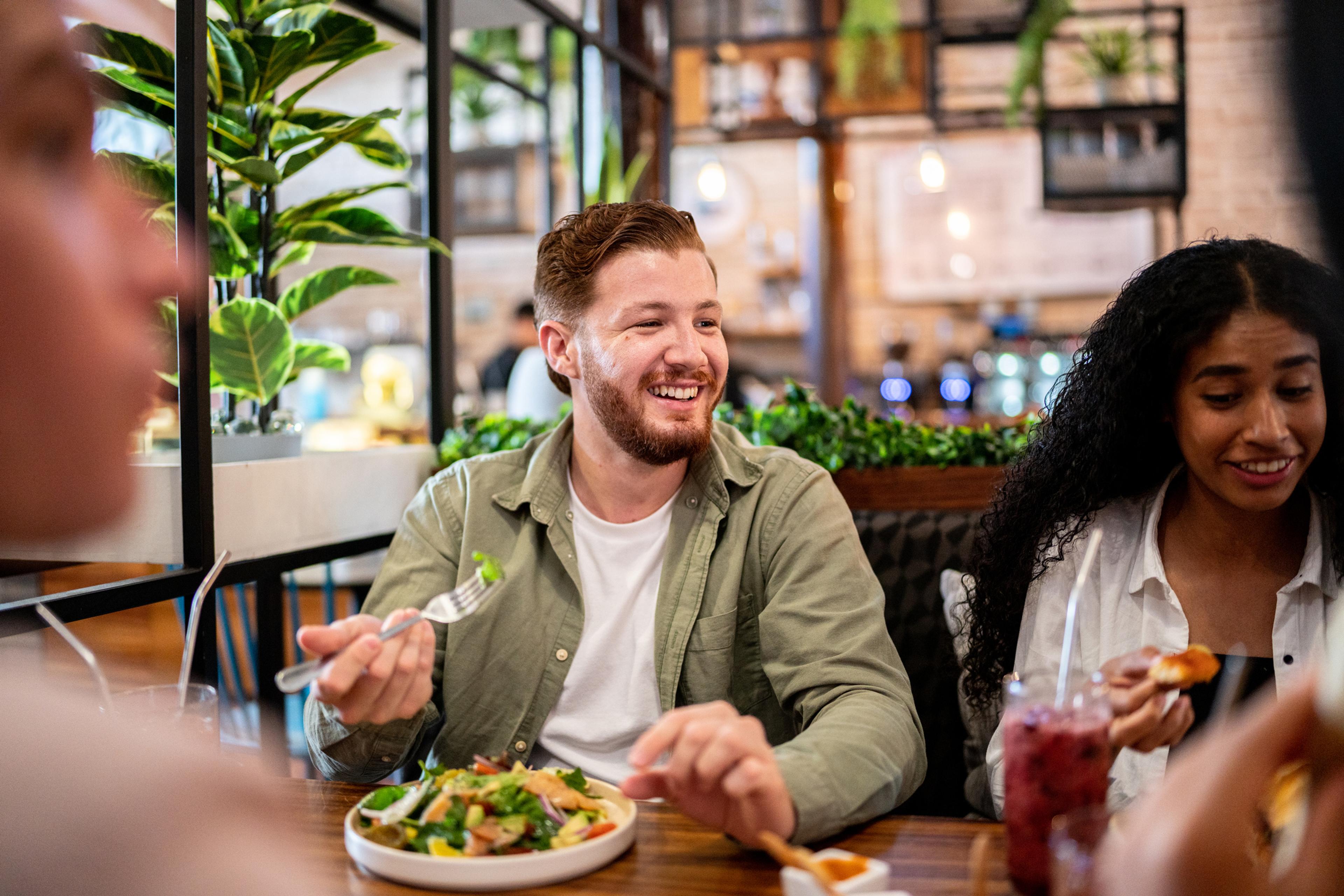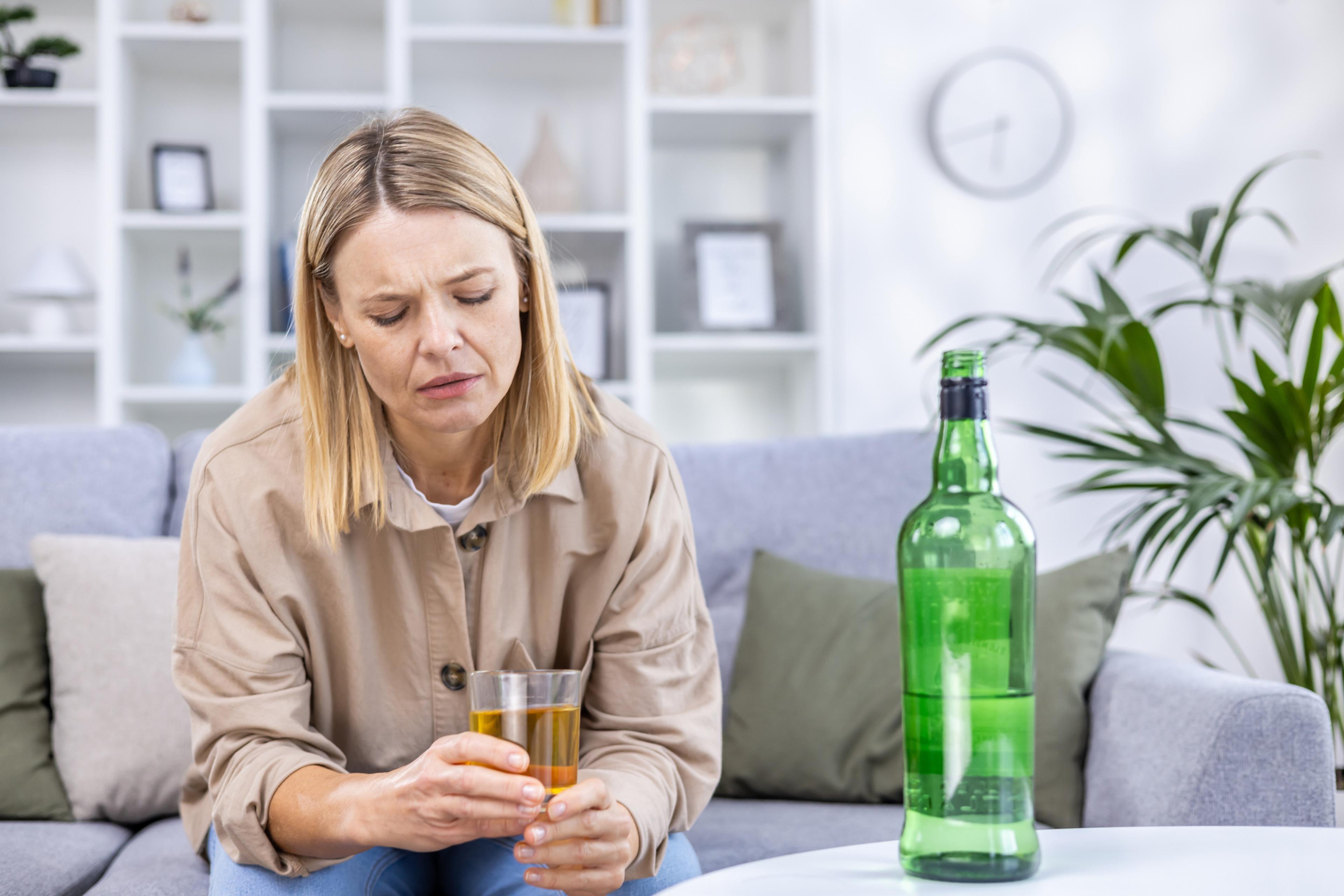What Does Sober Curious Mean?
Shandra Martinez
| 4 min read

Health fads come and go, but in the last several years it seems like trends involving alcohol – or the absence of it – have been gaining traction, especially among millennials and their younger counterparts. An increasing number of people have taken part in Dry January in the last several years, deciding to kick off the first month of the year by abstaining from alcohol. A step down from that is the sober curious movement. It continues to grow in popularity. It gives people the freedom to set their own rules when it comes to decreasing their consumption of wine, beer and liquor. It’s not an all-or-nothing stance, which may be part of its appeal. But what does it mean to be Sober Curious?
What is sober curious?
At its heart, sober curious is more of a lifestyle choice than a declaration of how someone feels about alcohol. The sober curious movement invites people to pause and question if they really want to be drinking every time they find themselves in a situation where alcohol is involved. It’s not an anti-alcohol movement. Instead, it encourages people to get in touch with their own feelings about why they want to drink, and how it makes them feel mentally and physically.
People can be sober curious and still order a drink at a restaurant or pour one for themselves at home. What the movement is trying to highlight are all the times people seem to drink out of habit. Maybe someone is so used to pouring a nightly glass of wine, they do it without thinking. Or when work friends meet at a bar, they automatically order alcohol as if it’s expected. Adopting a sober curious lifestyle means people will most likely drink less frequently, and when they do drink it will be because they’ve thought about it and made a conscious decision to imbibe.
The sober curious movement is one of the things fueling the rise of non-alcoholic “mocktails” available on restaurant menus, and events that are now advertised as sober.
What’s behind the trend?
Some polls have pegged the interest in sober curious at about 20% of the adult population. What we do know is that the sober curious movement dovetails with a decrease in drinking by the college-age crowd. A University of Michigan study released a few years ago showed that between 2002 and 2018, the number of U.S. college students ages 18 to 22 who said they did not drink alcohol increased from 20% to 28%. For those the same age but not in college, those who reported not drinking rose from 24% to 30%.
A healthier approach
Sober curious draws devotees for many different reasons. Some people have decided they don’t like how they feel when they drink too much alcohol. They want to skip the hangovers, or the relationship problems that drinking can exacerbate. Others take a step back from alcohol as a way to save money. But a big part of this trend targeting lower alcohol consumption seems to spring from a desire to live healthier lifestyles.
Drinking too much alcohol can have serious side effects on a person’s mental and physical health, according to the Centers for Disease Control and Prevention. These long-term impacts include:
- Chronic diseases like heart disease, liver disease, high blood pressure, and digestive problems
- Increased risk of stroke
- Several types of cancer
- Memory problems, including dementia
- Depression, anxiety and other mental health problems
- A weakened immune system
- Social or relationship problems with family members, friends and co-workers
Is Sober curious right for you?
If you’re ready to be more thoughtful and deliberate about your choice to drink alcohol – or abstain from it – the Social curious lifestyle might be for you. It doesn’t mean you can never enjoy another craft beer or make a toast with a glass of bubbly. But it is a way to make more thoughtful decisions about what you’re putting in your body. If you want to try it, here are some tips:
- Pause before ordering alcohol when you’re in public. Do you really want this drink?
- Plan ahead: If you’re headed out with friends, decide in advance whether you will be having a drink.
- Be more mindful before having a drink at home. Why are you having one?
Did you know? AHM is launching a “Sober Curious” series! Michigan dry bars, alcohol-free pop-ups, alcohol-free mobile bars and some of the best N/A and mocktail products around will be spotlighted, as will the stories of the people behind this movement. Check out the intro to the series, here:
Photo credit: Getty Images





